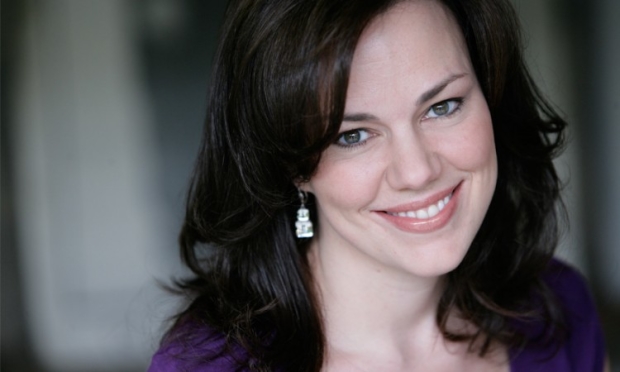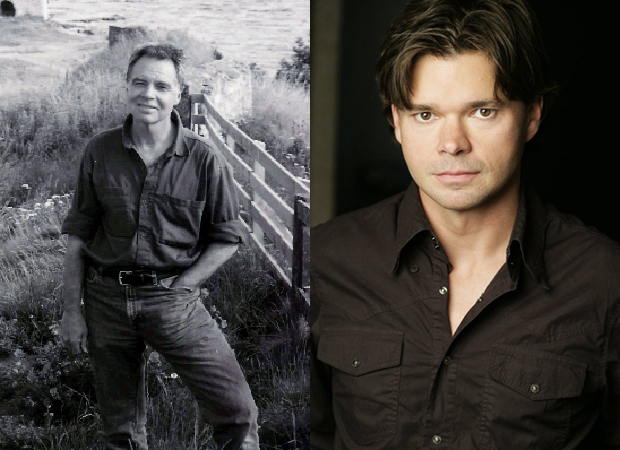Composer Georgia Stitt Looks Forward to a Big Bright Future for Her Musical Big Red Sun
Big Red Sun, Georgia Stitt and John Jiler's new musical about a fictional family of musicians living in the fast-changing world of mid-20th-century America, has had a long journey to the stage. "We read the very first pages of act one in 2005," Stitt remembers, "and, I mean, now I have a 10-year-old daughter."
But it's within the last year that Big Red Sun, which has enjoyed several high-profile developmental readings, has had the opportunity to look beyond development and toward staged productions. Next month, Philadelphia's 11th-Hour Theatre Company will be presenting a three-night concert of the musical with an eye to staging a full production next season, but first, the show will have its world premiere in a concert presentation at Feinstein's/54 Below on January 19.
Tony-nominated actor, director, and writer Hunter Foster (with whom Stitt is also writing a new musical entitled Tempest Rock) is set to direct the premiere, which will feature a cast that includes Jill Abramovitz, Adam Cochran, David Josefsberg, Betsy Morgan, Maurice Murphy, and Michael Philip O'Brien. But of all the performers who will take the stage at Feinstein's/54 Below next week, it's the band, which includes Stitt on the piano as well as Randy Landau (bass), Shannon Ford (drums), Alec Berlin (guitar), and Rob DeBellis (flute, clarinet, sax), who have earned the right to be most excited. Some of them, Stitt recalls, were the same musicians who made Big Red Sun's demos nearly a decade ago. "So it's exciting to play with them," she said. "The people in the band are my guys."

How did this project come to be?
I was doing one of my evenings of songs and John came to it and, when he tells the story, he says, "There I was sitting in the dark nursing my martini listening to your music and I thought, 'I want to work with her.'" So he brought me this idea for a piece. And there's music pouring out of it. It had to be a musical. It's a piece about musicians, about music, about a time in America where the music changed at the same rate that the country was changing. So the way the music changes becomes a metaphor for the way society changes.
What is the music like?
The story starts in the late thirties and one of the characters is a klezmer musician, a band leader [who] is at the forefront of turning klezmer music into swing music…So John and I did a lot of research into Benny Goodman and Artie Shaw and the great band leaders of that era. And then the [klezmer musician's] son comes along, the present tense is 1963, and by the end of the show he's sort of Bob Dylan. He's turning into a kid who's going to be at the forefront of protest music.
So in the course of one generation we're able to chart klezmer music, swing music, the budding of rock and roll, the sort of whitewash of fifties music that explodes into the early sixties.
Tell me more about the story.
The main character is Harry. He's this sixteen-year-old kid in 1963 who's being raised by his mother, Helen. His father died in the war, [but] there are pieces of his story that the son doesn't understand…so Harry starts poking around. There's another character, James, who was a bandmate and war buddy of Harry's father, so Harry goes to meet James, who tells him parts of the story [and] every time he gets new information in act one we see the flashback of the father in the the thirties and the forties, living the stories that are being told to the son. That all culminates with a big surprising truth revealed at the end of the first act, and then act two explodes in a different direction.

What's it been like working with Hunter Foster as a director?
John said to me after our first rehearsal, "He's such a creature of the theater. He has such theatrical instincts."…And what I love about having Hunter on board for this is that I trust him and I know what John said to be true, that he's a man of the theater and he's smart and committed. It's great to have that ally in the room.
What's it like staging a piece that you first began working on a decade ago?
It's been slowly and surely growing and developing over these years and [now] we're finally able to give it attention and answer some of the questions that have been plaguing us…[There are] new orchestrations, and much of Act Two is new — a lot of the songs are new.
I feel like we have both become better writers in those ten years…Part of this process has been just making sure that everything that's in there is there for a reason and also that we're not assuming that you know something about the characters because we know it, because of the many, many hours we've spent sitting at diners saying, "What if…"











